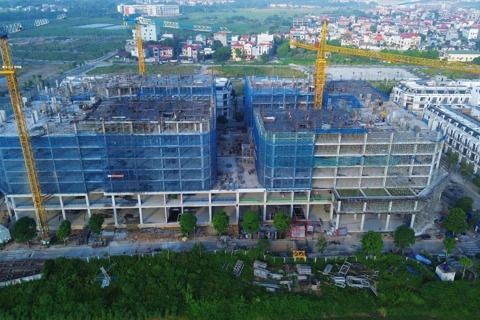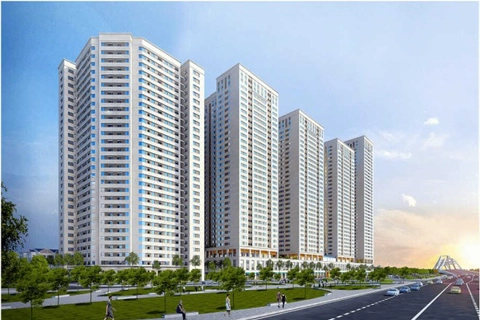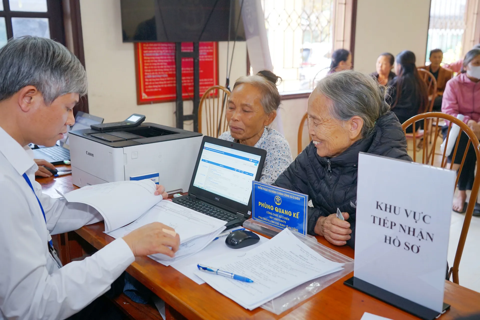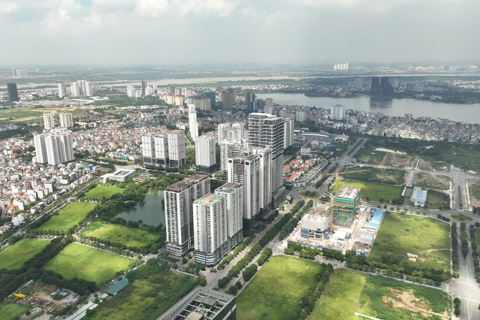Property
Is it time to invest in Vietnam’s prime homes?
Jan 31, 2019 / 05:20 AM
Vietnam`s real estate sector remains a promising land for investors as Hanoi and Ho Chi Minh City are undergoing rapid transformations, continuing to catch regional peers.
There are a number of reasons indicating how fast Vietnamese economy has grown in the recent years and how dynamic the real estate market has been over the past years.
Since the market recovery in the past few years after a slow period between 2010 and 2014, investors have been pouring money into different segments, mostly prime homes thanks to strongly-supported fundamentals.
Accordingly, strong price increases in the real estate market have turned Vietnam into a promising land and an investment hub for those who want to diversify their investment portfolios.
Encouraging macroeconomic indicators
With positive economic outlook, the real estate sector remains a promising land for both domestic and international investors as big cities like Hanoi and Ho Chi Minh City are undergoing rapid transformations, continuing to catch regional peers, Savills Vietnam has forecast.
Positive economic indicators namely high GDP growth rate, high forex reserves, and a strong Vietnamese dong have helped purchases by foreigners reach unprecedented levels in 2018.
Except for macroeconomics, suitable investment policies and long-term construction planning have caught attention of investors who foresee significant profit margins.
The relatively low taxation in Vietnam appears increasingly attractive to buyers both at home and abroad in the context that many countries have introduced cooling measures to result in higher taxation.
Notably since 2015 when the new housing law opened the market to international investors and homebuyers, it is not surprising that demand for investment properties in Vietnam has increased significantly.
Investment inflows
With high levels of capital inflows besides significant foreign direct investment (FDI) and remittances at a recorded level, the market has enjoyed the entry of new luxury projects with better quality, prime locations, premium materials and world class facilities.
Another reason supporting the market growth is a steady increase in average incomes and good financing packages available to domestic buyers. Accordingly, the market has witnessed much positive change.
Market momentum
The momentum in Vietnam’s residential market continued to be driven by the golden demographics and the completion of new infrastructure projects.
As a result, HCM City’s apartment market is underwritten by strong occupier demand, whilst the high-end segment in both cities is appealing to both local high-net-worth individuals (HNWIs) and international purchasers.
In terms of prices, apartment prices in Hanoi and HCM City are generally lower than regional peers such as Kuala Lumpur and Bangkok. The prices in Vietnam’s big cities are expected to increase linked to higher development standards and continued strong residential demand driven by urbanization, the rapid growth of the middle class, as well as new infrastructure.
New home prices in Ho Chi Minh City’s CBD now average around US$5,500 to US$ 6,500/square meter.
According to Savills Vietnam, there is tremendous upside and opportunity for long term investment, with buyers set to benefit from potential capital appreciation as Vietnam continues its remarkable growth story. Vietnam is well on the way to becoming Asia’s next tiger, with strong economic growth, a rapidly growing middle class and, for the time being at least, relatively affordable pricing.

Illustrative photo
|
Accordingly, strong price increases in the real estate market have turned Vietnam into a promising land and an investment hub for those who want to diversify their investment portfolios.
Encouraging macroeconomic indicators
With positive economic outlook, the real estate sector remains a promising land for both domestic and international investors as big cities like Hanoi and Ho Chi Minh City are undergoing rapid transformations, continuing to catch regional peers, Savills Vietnam has forecast.
Positive economic indicators namely high GDP growth rate, high forex reserves, and a strong Vietnamese dong have helped purchases by foreigners reach unprecedented levels in 2018.
Except for macroeconomics, suitable investment policies and long-term construction planning have caught attention of investors who foresee significant profit margins.
The relatively low taxation in Vietnam appears increasingly attractive to buyers both at home and abroad in the context that many countries have introduced cooling measures to result in higher taxation.
Notably since 2015 when the new housing law opened the market to international investors and homebuyers, it is not surprising that demand for investment properties in Vietnam has increased significantly.
Investment inflows
With high levels of capital inflows besides significant foreign direct investment (FDI) and remittances at a recorded level, the market has enjoyed the entry of new luxury projects with better quality, prime locations, premium materials and world class facilities.
Another reason supporting the market growth is a steady increase in average incomes and good financing packages available to domestic buyers. Accordingly, the market has witnessed much positive change.
Market momentum

Regional high-end prices. Photo: Savills Research and Consultancy
|
As a result, HCM City’s apartment market is underwritten by strong occupier demand, whilst the high-end segment in both cities is appealing to both local high-net-worth individuals (HNWIs) and international purchasers.
In terms of prices, apartment prices in Hanoi and HCM City are generally lower than regional peers such as Kuala Lumpur and Bangkok. The prices in Vietnam’s big cities are expected to increase linked to higher development standards and continued strong residential demand driven by urbanization, the rapid growth of the middle class, as well as new infrastructure.
New home prices in Ho Chi Minh City’s CBD now average around US$5,500 to US$ 6,500/square meter.
According to Savills Vietnam, there is tremendous upside and opportunity for long term investment, with buyers set to benefit from potential capital appreciation as Vietnam continues its remarkable growth story. Vietnam is well on the way to becoming Asia’s next tiger, with strong economic growth, a rapidly growing middle class and, for the time being at least, relatively affordable pricing.








